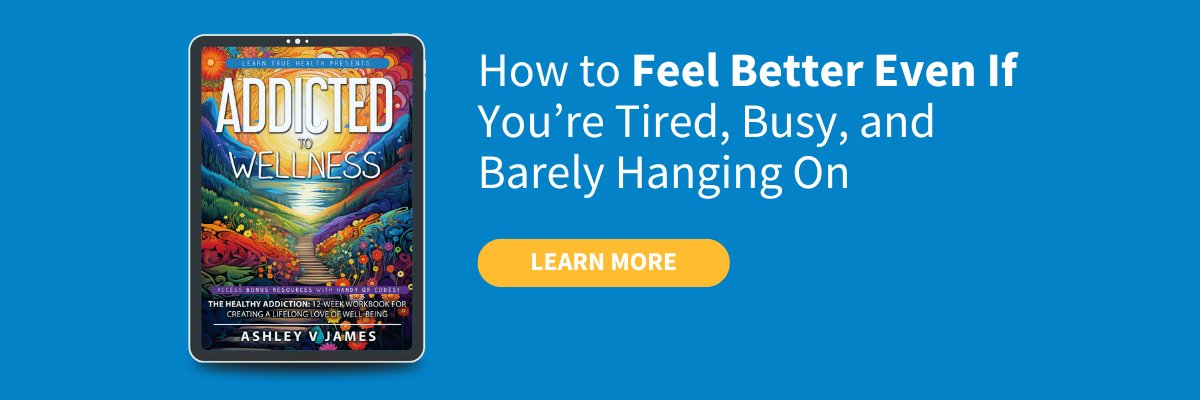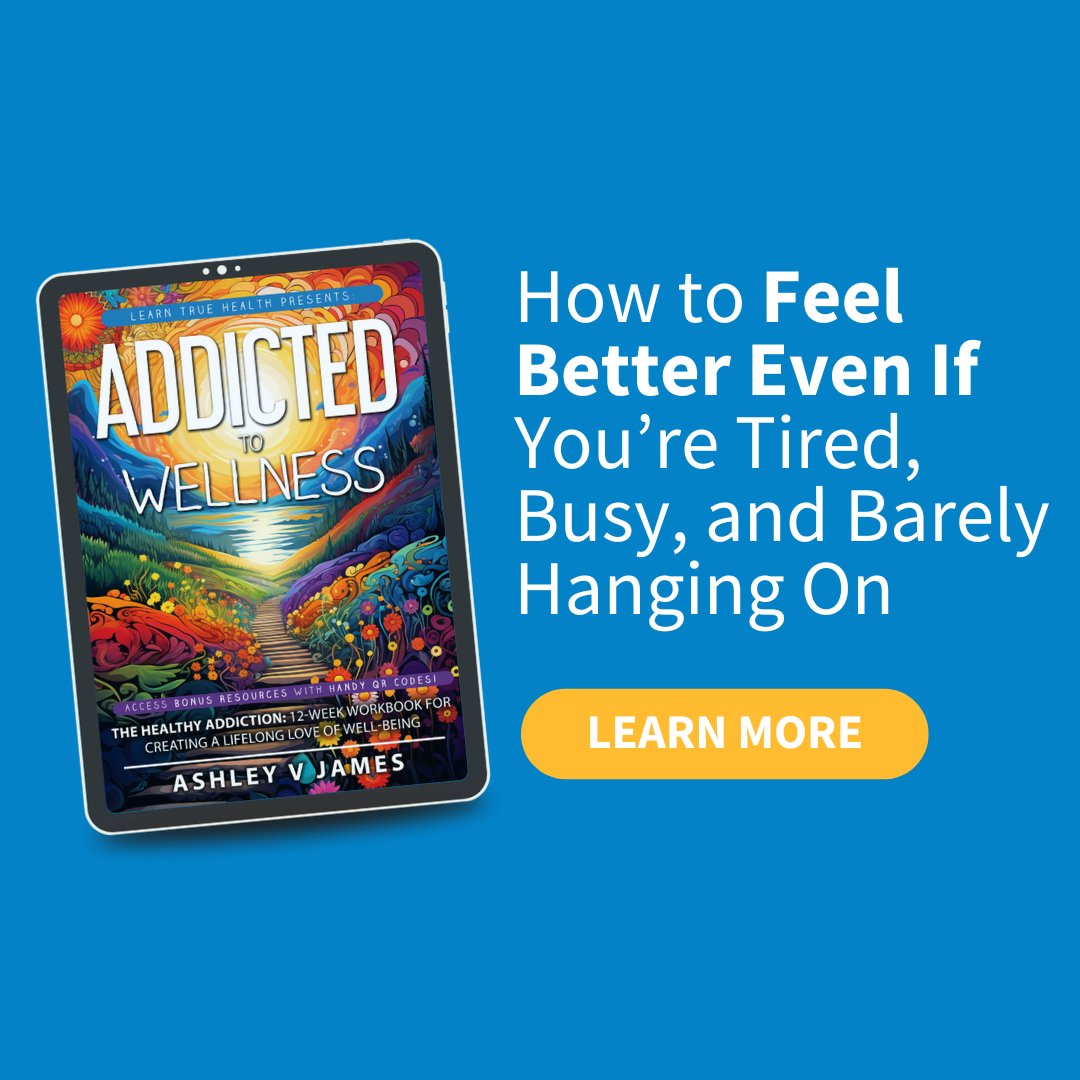320: Relationship With Food

Heidi Schauster and Ashley James
Our relationship with food goes hand in hand with our physical and emotional self. Some may say it is hard to get our diet choices on the right track. But honestly, our eating disorders or food cravings sometimes aren't because we are hungry. To explain how to heal our relationship with food, I have Dietician and Book Author Heidi Schauster in this episode.
Eating Disorder
Heidi Schauster didn't have the best relationship with food when she was younger. She struggled with eating disorders during adolescence. And went through a recovery process that included some study of nutrition.
Heidi Schauster decided to study nutrition in college because she was obsessed with food. However, she was also a strong science geek and was interested in physiology and anatomy.
She thought she would go on to medical school, but Heidi Schauster didn't like the lifestyle. So, she chose to pursue studying nutrition instead. Studying nutrition was helpful in Heidi Schauster's recovery.
“I was a ballet dancer, and I thought dieting was the norm. And that I needed to eat more food than I thought. Studying nutrition helped me relax a little bit more to understand how food was needed in my body and muscles. And I allowed myself to eat more,” said Heidi Schauster.
Getting Inspired
Heidi Schauster has been helping people deal with their relationship with food for 23 years now. It was a far cry from her teenage years when her relationship with food was so chaotic.
Heidi Schauster almost had to relearn that sense of pleasure and enjoyment from food. As a culmination of her recovery work, it helped that she had experience watching kids enjoy food again when she worked at a children's hospital in Boston. That inspired her to help people.
Nourish: How to Heal Your Relationship with Food, Body, and Self
Heidi Schauster wrote Nourish: How to Heal Your Relationship with Food, Body, and Self because she wanted to create a nutrition book that was not going to be triggering for someone who is recovering from an eating disorder. She wanted it to be something that was also accessible to people who don't have an eating disorder but feel like their relationship with food was funky.
“I don't know how anyone can not have a funky relationship with food sometimes in this culture. There are so many things pointing us in the direction of using food to better ourselves,” Heidi Schauster said.
Heidi Schauster believes that when anyone today struggles with their relationship with food, there is fear involved. For some, it's bigger fears than others. Hence, reintroducing food is a very slow program wherein a trusting relationship must be developed first.
“We've gotten so mind-driven over our food choices. And we think about what we should eat so much. As a result, we don't drop into our bodies and ask what would be right for you right now and listen to that response,” explains Heidi Schauster.
She adds, “If someone is very out of touch with their body, and not used to inhabiting their body or making decisions on what to eat, it can feel foreign to trust again.”

Steps To A Well-Balanced Diet
First of all, Heidi Schauster advises to let go of the diet mentality and sense of trying to fix the body through food. We must accept that our body is ideal. When you come from that place of body acceptance, then you tend to make different choices around eating. Your choices will tend to be healthier.
Another way to get your diet on track is thorough diffusion. It is a behavioral technique where you listen to your thoughts and approach it as an observer. Then you decide how to behave.
“It just gives you a little space to take care of yourself and your body. And doesn't necessarily mean you must go on a diet,” Heidi Schauster said.
Negative Thoughts
According to Heidi Schauster, negative thoughts are a part of life, and they appear for a reason. And it's nice to know why they are coming up. What happens over time is that people start to behave from a place of self-care when they have negative self-talk instead of reacting to those negative thoughts in a self-destructive way.
“Negative thoughts can be little messengers telling us that something is not right in the system. Sometimes when we find ourselves scourging for food. It's not because we are hungry. It's because we need something and we can't figure out what it is that we are needing,” explains Heidi Schauster.
She adds, “And so while food is here and it's pleasurable, pause and slow down a little bit. You may find that there is something else beneath that compulsion that drives you to eat or starve.”
Different from Drug Addiction
Heidi Schauster believes that we can't be addicted to food in the same way that we are addicted to other substances. We don't have to have a relationship with heroin or alcohol to live. But we have to face nourishing ourselves with food several times a day. We can't deny that highly palatable food has an addictive quality to it or psychologically dependent on it.
“When people are eating enough and balanced way, food often comes into balance quite well,” said Heidi Schauster. “We can become much more addicted to food or driven to eat in an out of control way or coping way when we're not eating well on a regular basis. There are psychological and emotional reasons.”
She adds, “Our work ethics sometimes is why people don't eat well throughout the day. Our bodies end up starving at the end of the day. Food activates all of the senses, but it's not the same as being addicted to drugs.”

Getting Back On Track
Heidi Schauster says getting back to a more embodied way of eating takes practice. It can mean getting reacquainted with your hunger and fullness cues. Some of it is also exploring what might be going on underneath. Ultimately, it takes work to figure out what is the eating style that serves you and your life the best.
And eating styles are different because our bodies are different. Our bodies are unique, and everybody's journey is different. If you want to get back on track, it may help to ask yourself these questions:
- What is going on with my body at these different points during the day?
- What sensations do I have around hunger or fullness?
- What are my unique habits around food that feel good and ones that don't feel good?
- Why can't I stop doing them?
If somebody is not used to making choices about food from an embodied place that connects to your body, hunger and fullness can be elusive. That's why Heidi Schauster advises people to close their eyes, take a deep breath, get into your body and ask on a scale of 0 to 10, where are your hunger and fullness.
It's all about pausing or checking in regularly. Ask what is it that you need at any given moment. See if your need for connection is not being met and figure out how can you meet that need. It's something you have to do for myself.
Internal Family Systems
Heidi Schauster says there' s a branch of psychotherapy called Internal Family Systems. It is useful in identifying those parts that are there to protect us. And they have a purpose. A lot of Heidi Schauster's clients have benefited from this method of healing their relationship with food.
“It recognizes that we live in all of us like a family of parts. Some of those parts are younger than others. But they are all trying to help regulate and stay together in this world,” Heidi Schauster said.
She adds, “Some of those parts are protectors. And some of those parts are managers. Plus, they might be doing something in this world that we don't like. Like the part of us bingeing or inner outbursts. If we can understand that, we can build compassion within ourselves for ourselves.”
The Right Diet
According to Heidi Schauster, the field of nutrition is a young field and always evolving. That's partly why we feel we are contradicting ourselves. Because science is always evolving and changing over time, adding to the complexity of the situation, there are always studies that come out and get interpreted a certain way.
“I try not to create judgment around anybody's food preferences and desires. But rather allow them to explore what makes them feel good and what doesn't,” said Heidi Schauster. “It's about connecting to yourself and being able to make those choices. And it gets back to mindfulness. It's about dropping into the present moment.”
A Nourishing World
To get more information on how to improve your relationship with food or get a copy of Heidi Schauster's latest book, do check out her website because there's such a wealth of information there.
“We are all worthy of care and love, compassion and nurturing. We all deserve to have our needs met. And there is not one that can do that better than ourselves,” said Heidi Schauster.
Heidi Schauster is a nutrition therapist with over 20 years of experience in the field of disordered eating. She is a writer, consultant, and certified eating disorders registered dietitian and supervisor, based in the Greater Boston area. She is also the author of Nourish: How to Heal Your Relationship with Food, Body, and Self.
Heidi Schauster completed her dietetic internship and Master's degree at Tufts University and began her career at Children's Hospital, Boston. After completing an Adolescent Fellowship at Children’s Hospital, she worked as Clinical Dietitian Specialist for Inpatient Psychiatry and the Outpatient Adolescent Clinic. Since 1999, she has maintained a full-time private practice. She is the founder of Nourishing Words Nutrition Therapy in the Greater Boston area.
In addition to counseling, Heidi Schauster consulted with schools, universities, and professional groups, and lectured widely on the topic of disordered eating.
Heidi Schauster also provides individual and group clinical supervision for my colleagues in the nutrition field who work with disordered eating. She is a Faculty Member at Plymouth State University in their graduate level Eating Disorders Institute.
Heidi Schauster teaches nutrition education and counseling course that is part of a unique training program for professionals in the health and mental health fields who want to obtain special training in eating disorders.

Get Connected With Heidi Schauster!
Book by Heidi Schauster
Nourish: How to Heal Your Relationship with Food, Body, and Self


Recommended Reading by Heidi Schauster
Intuitive Eating by Evelyn Tribole and Elise Resch


Subscribe To Our YouTube Channel
Relationship With Food – Heidi Schauster & Ashley James – #320
Join the Learn True Health Community & Support Us on Patreon
Order High-Quality Supplements
Join Our Facebook Community Group
Visit Our YouTube Channel
Share:
Related Posts
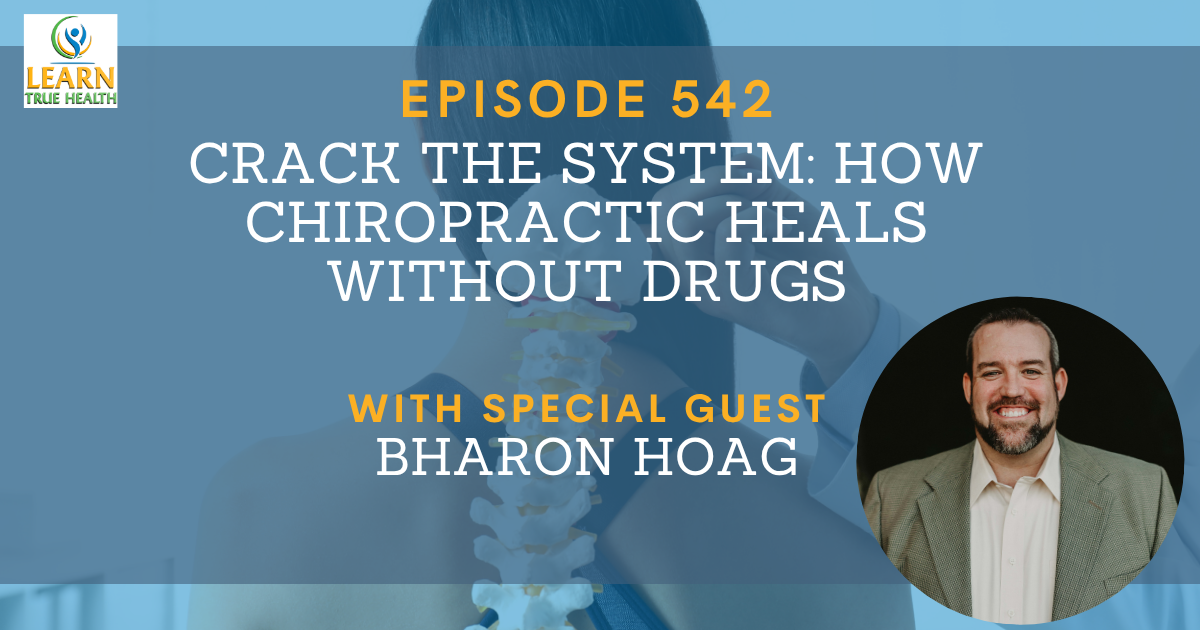
542: Crack the System: How Chiropractic Heals Without Drugs
Chiropractic care is often misunderstood, but this episode of the Learn True Health podcast sheds light on its powerful benefits, scientific backing, and the extensive
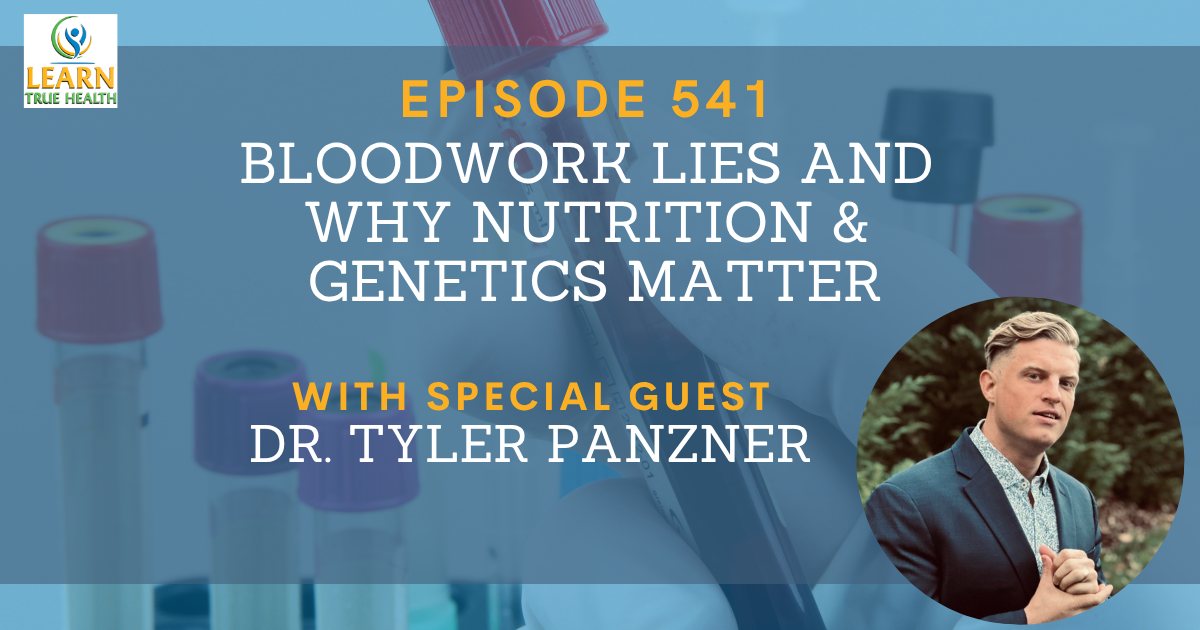
541: Bloodwork Lies and Why Nutrition & Genetics Matter, Dr. Tyler Panzner
In this fascinating and deeply informative episode, Dr. Tyler Panzner—PhD scientist and functional genetic expert—joins us to explore the groundbreaking world of personalized health through
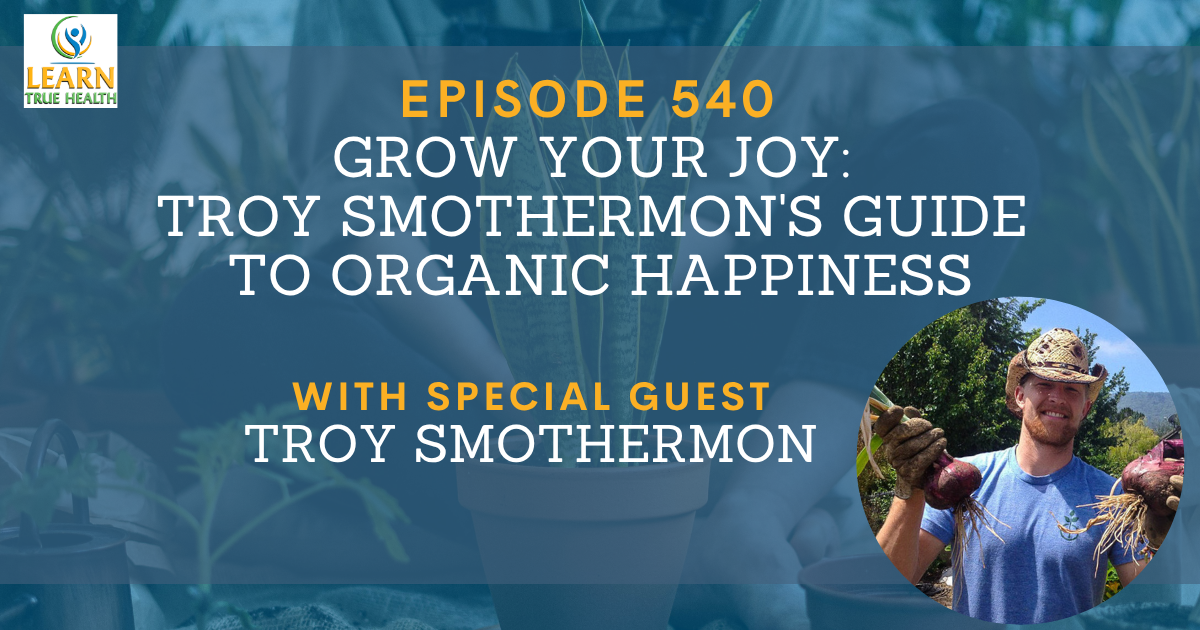
540: Grow your Joy: Troy Smothermon’s Guide to Organic Happiness
Gardening isn’t just about growing food — it’s about reconnecting with nature, boosting your mental and physical health, and cultivating a sense of community and
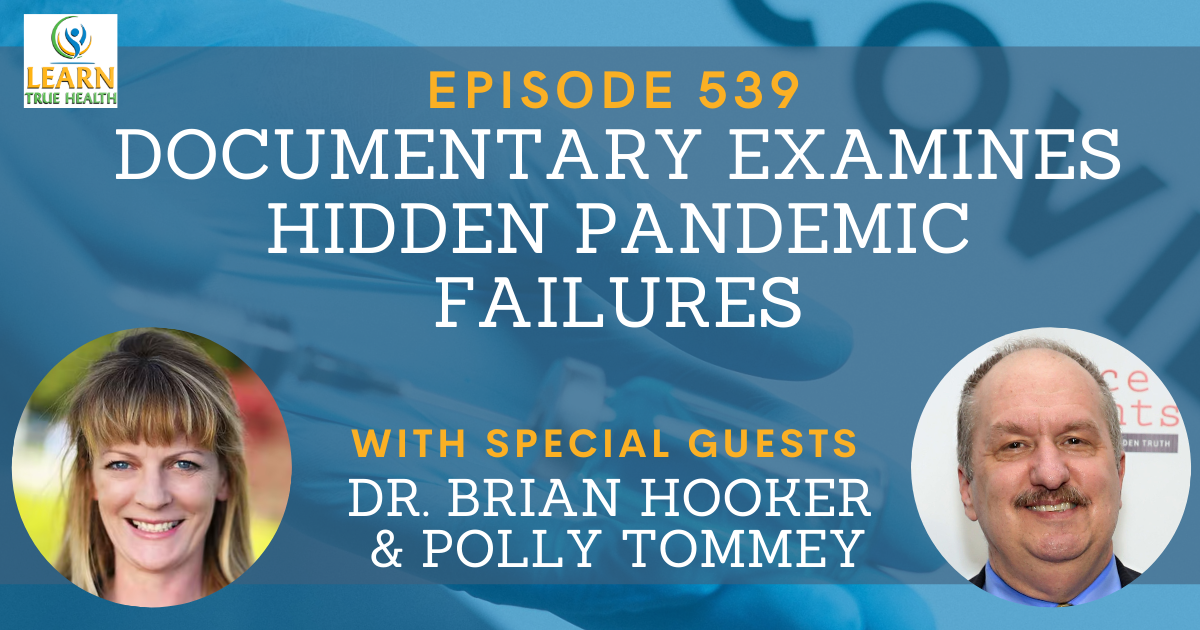
539: Documentary Examines Hidden Pandemic Failures
In this episode, Ashley James interviews Dr. Brian Hooker and Polly Tommey to expose the devastating impact of COVID-19 vaccine injuries, the suppression of medical

